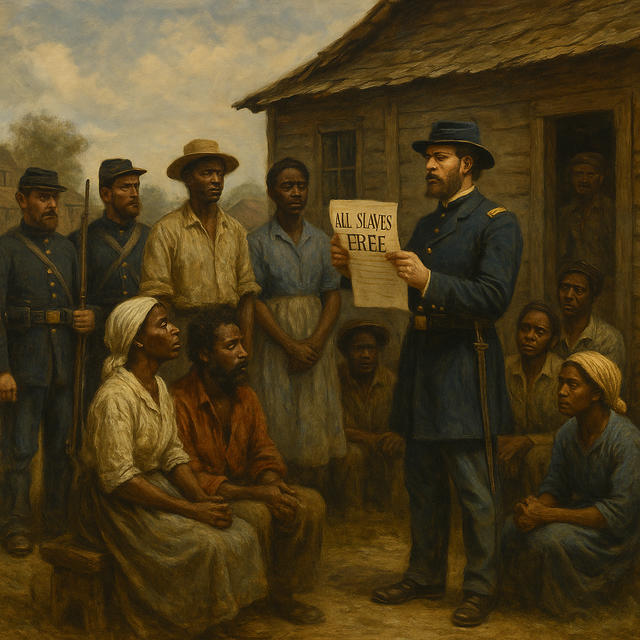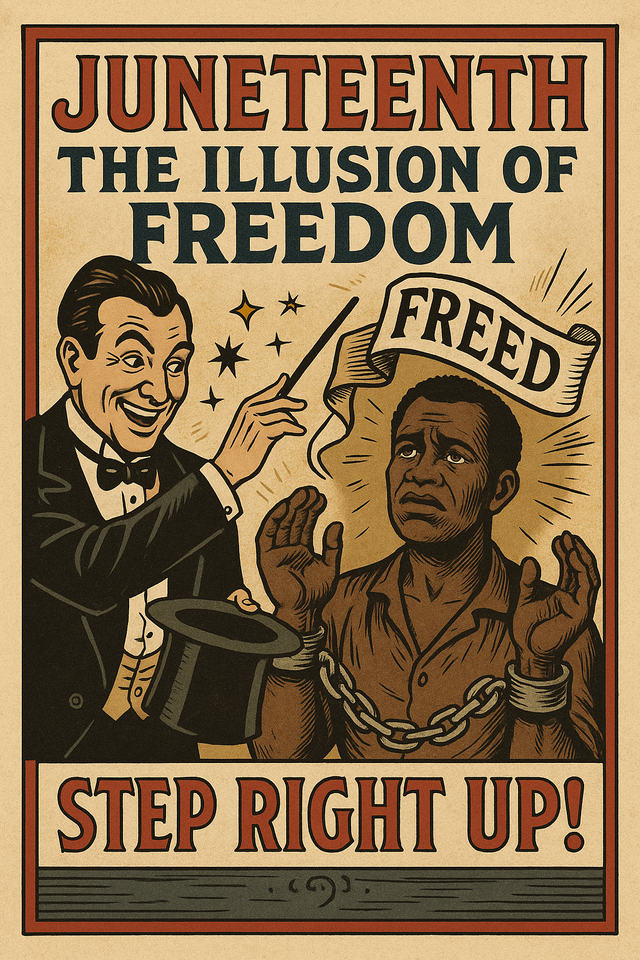Juneteenth and the Illusion of Freedom.
This Day in History… or So You Were Told:
June 19, 1865—Union troops arrive in Galveston and declare the slaves free. It’s called Juneteenth, the end of slavery in America. Or so you were told. Would you believe… it was really the start of a new kind of bondage?
Juneteenth and the Illusion of Freedom: Liberty Without Law Is Just Another Form of Bondage
“They promise them liberty, while they themselves are the servants of corruption.”
— 2 Peter 2:19
🎭 Introduction: A Genie’s Wish Without Wisdom
Imagine a desperate man finds a genie. “Set me free!” he demands. And the genie says, “As you wish.” In a blink, the man’s shackles fall off—but he’s now in the wilderness, naked, starving, hunted, and invisible to the law. Technically, he’s “free.” Practically, he’s abandoned. That’s Juneteenth in a nutshell.
On June 19, 1865, Union General Gordon Granger announced in Galveston, Texas, that “all slaves are free” under General Order No. 3. But what followed wasn’t liberty in any biblical or constitutional sense—it was military occupation, economic dispossession, and legal uncertainty. The freed men and women had no land, no citizenship, no family protections, no restitution, and no welcome—north or south. And worse, they were now subject to new systems of bondage cleverly disguised as progress.
This isn’t to dishonor the longing for freedom. But it is to say: Juneteenth was not the end of slavery. It was the beginning of its transformation into something more covert—and more profitable.
⚖️ The Emancipation Proclamation: Political Theater, Not Legal Freedom
Abraham Lincoln’s famous 1863 proclamation “freed” only those slaves in Confederate-held territories—where the Union had no authority to enforce it. In loyal Union states like Kentucky and Delaware, slavery remained untouched. In fact, Lincoln said it plainly:
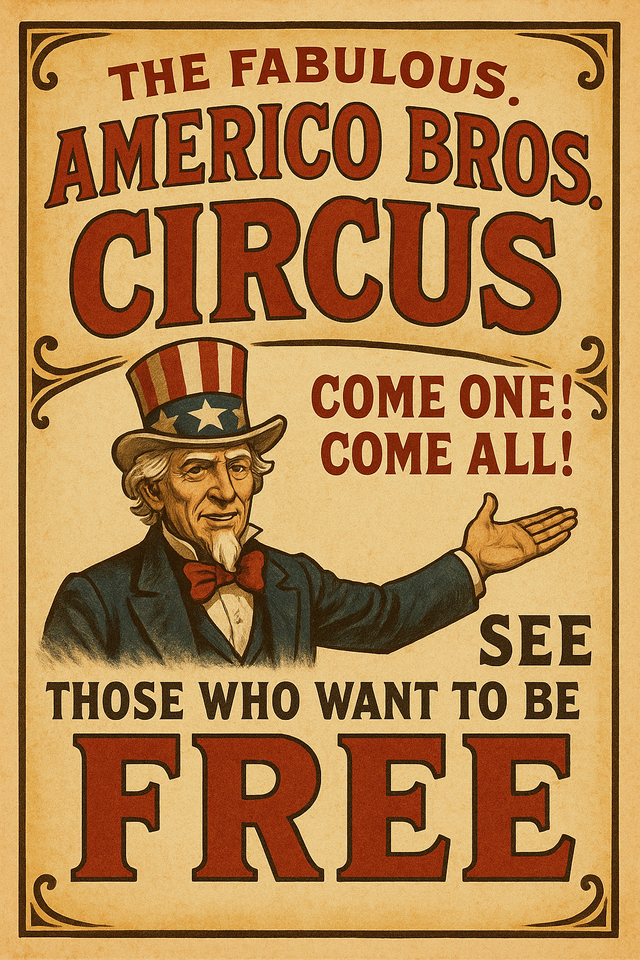
“If I could save the Union without freeing any slave I would do it... what I do about slavery… I do because I believe it helps to save the Union.”
— Abraham Lincoln, Letter to Horace Greeley, August 22, 1862
So let’s be honest: Lincoln’s Emancipation was not a moral act. It was a military maneuver, aimed at undermining the Southern economy, boosting Northern morale, and preventing European alliances with the Confederacy.
Freedmen were not made citizens. They had no right to vote, no guaranteed pay, and no land. They were “free” to walk off the plantation—straight into starvation, vagrancy arrests, or forced labor contracts.
🔗 The 13th Amendment: Slavery Rebranded
“Neither slavery nor involuntary servitude, except as a punishment for crime… shall exist within the United States.”
— 13th Amendment, Section 1
The public was told slavery had ended. But the fine print told another story. The clause “except as a punishment for crime” became a goldmine for the emerging carceral state. Black men were arrested en masse for “vagrancy,” “loitering,” and “breaking labor contracts,” and then leased to private railroads, mines, and farms in one of the most brutal systems of labor in American history.
Convict leasing, chain gangs, and labor prisons replaced the plantation. This system existed in full force well into the 20th century and continues today under different labels.
Case Law Note: In Plessy v. Ferguson (1896), the Supreme Court enshrined segregation and second-class status, asserting that “separate but equal” facilities did not violate the 14th Amendment. Freedom was never the goal—containment was.
🏛️ The 14th Amendment: From Personhood to Federal Property
On paper, the 14th Amendment promised “equal protection.” But what it actually did was:
- Create a new federal citizenship, different from state citizenship.
- Place all freedmen (and eventually, all Americans) under federal jurisdiction.
- Lay the legal foundation for corporate personhood (Santa Clara County v. Southern Pacific Railroad, 1886).
Freedmen were no longer property of private men—they were now property of the state.
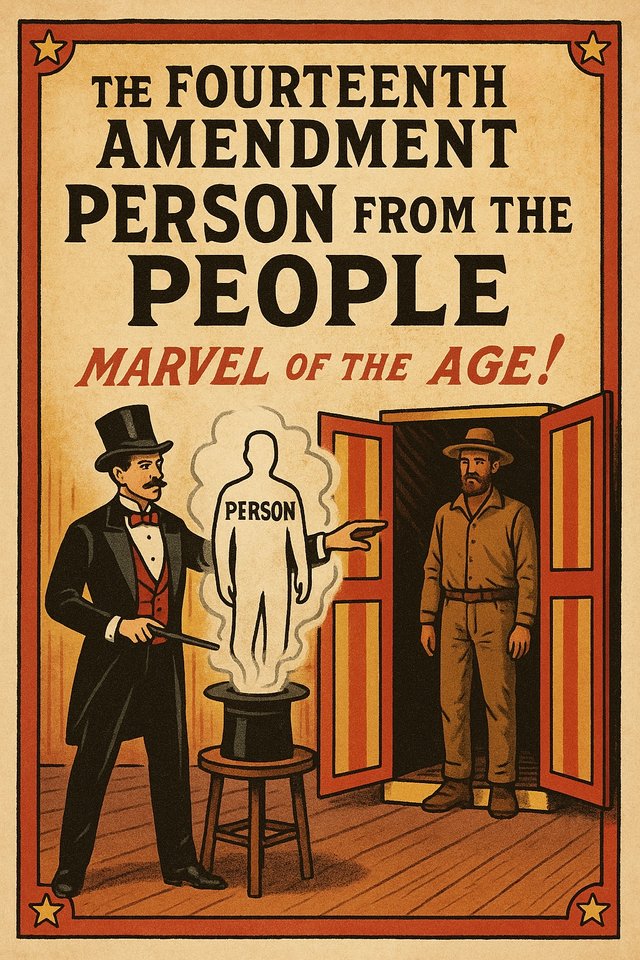
And guess what? Northern states wanted no part of them either. In 1863, Illinois explicitly banned Black migration into the state. Indiana’s constitution had similar provisions. Even New York newspapers expressed concern over an “influx of Negroes” postwar.
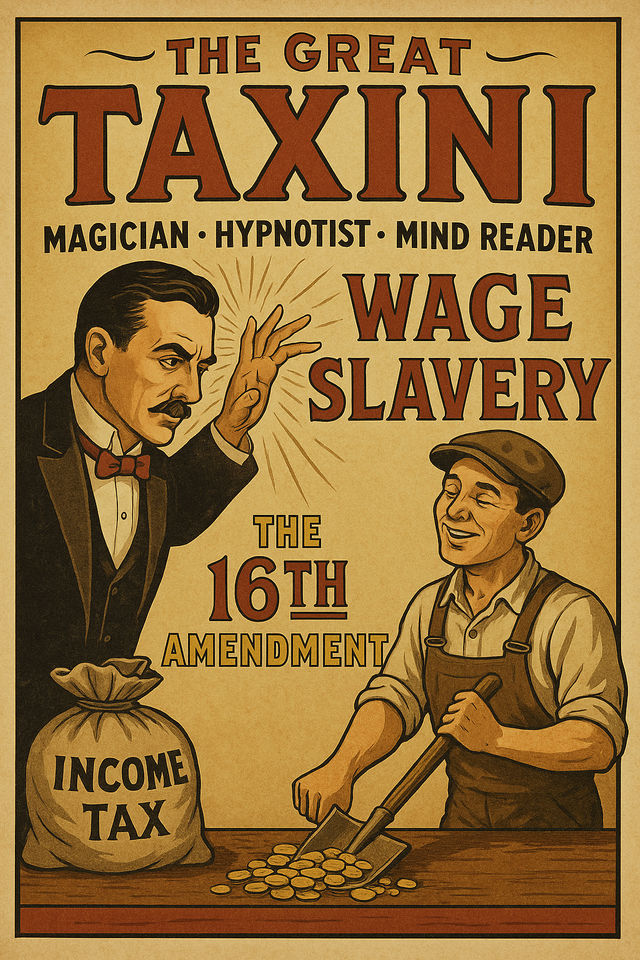
💰 The 16th Amendment: Taxing the Fruit of a Man’s Labor
Once under federal citizenship, all men became subject to income taxation by the 16th Amendment (1913). This was revolutionary:
- The labor of a man—formerly protected as his private property—was now commodified and subject to federal lien.
- All laborers became wage slaves, renting their lives to employers and tithing their earnings to the state.
“The laborer is worthy of his hire.” — Luke 10:7
But now, Caesar collects first.
🏴 Behind the Curtain: Northern Racism and Fabian Strategy
While the South was open in its racism, the North was covert and institutional—more dangerous in the long run. Here’s what some of the so-called “emancipators” really believed:
- William H. Seward, Lincoln’s Secretary of State:
“The Negro is not socially or politically equal to the white man… he is destined to occupy an inferior position.”
- Horace Greeley, editor of the New York Tribune:
“The superior race must rule… even if they must do so as a permanent aristocracy.”
- Charles Sumner believed Black people needed “elevation” by moral tutelage—not true equality.
Even Margaret Sanger, founder of Planned Parenthood, wrote:
“We do not want word to go out that we want to exterminate the Negro population.”
— Letter to Dr. Clarence Gamble, 1939
Many Fabians and Marxists of the time believed freedmen should be sterilized, segregated, or euthanized. The only reason they were spared? They became useful destabilizing pawns in the larger game of social control.
🏢 Incorporation of D.C. and the Monetization of Man
By 1871, the District of Columbia was formally incorporated—effectively creating a federal corporate structure that allowed the monetization of human beings as legal entities.
Everyone born under federal jurisdiction became a commercial asset:
- Assigned a number (birth certificate, Social Security)
- Tracked by contract (licenses, tax filings)
- Trained through systems (public school, military, prisons)
The same government that declared you “free” could now:
- Tax your labor
- Lease your body
- Seize your children
- Control your speech
That’s not freedom. That’s bondage in digital chains.
🧠 True Freedom Only Comes Through Christ
The world rebrands bondage every few generations. From chattel slavery to convict leasing, from wage slavery to welfare dependency, from Roman rule to D.C. incorporation—it’s the same system with a new face.
But the gospel is clear:
“If the Son therefore shall make you free, ye shall be free indeed.” — John 8:36
Biblical liberty means being delivered from sin, not just from man. It means being a servant of righteousness, not a pawn in someone else's empire.
“Ye are bought with a price; be not ye the servants of men.” — 1 Corinthians 7:23
🙏 Closing Word: Don’t Settle for Caesar’s Chains
Juneteenth should not be a celebration of government emancipation. It should be a warning: beware of freedom granted by tyrants. If it doesn’t come from Christ—it’s a trick.
Today, people cheer for a “holiday” that celebrates being turned from private property into federal chattel. But real liberty doesn’t come from a proclamation. It comes from a cross.
“Stand fast therefore in the liberty wherewith Christ hath made us free, and be not entangled again with the yoke of bondage.” — Galatians 5:1
